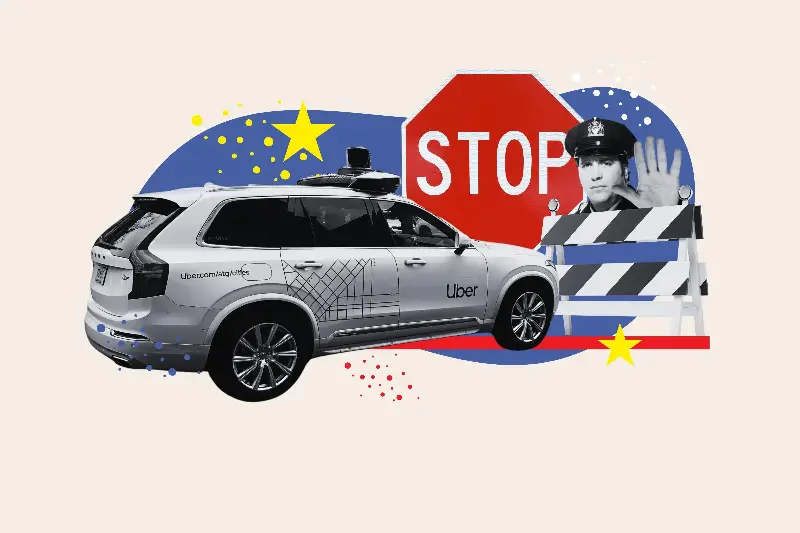
Uber says it is "ready to go" with its fleet of self-driving cars, but regulations in the UK could prevent them from touching the tarmac for several years.
Despite the ridesharing company's aim to have autonomous vehicles deployed in on British roads by 2026, a delay in the UK's lawmaking process on the issue means the industry will not see clarity on the topic until 2027, according to government officials.
Newsweek contacted Uber for more information via email.
Why It Matters
Initially thought to be impossibilities of science fiction, self-driving cars are now entering trial phases around the world, but their introduction brings huge growing pains for lawmakers. The new technology raises ethical questions around driver attention, the responsibility of artificial intelligence, and the safety of the tech in the first place, meaning regulators have a lot of uncharted water to cross before laws can be made governing the new industry.
What To Know
In the UK, these complications have resulted in transport regulators pushing a deadline for autonomous vehicle guidelines back a year, despite industry leaders saying their cars will be road-ready before then.
In 2024, the Department of Transport said that the Automated Vehicles Act would enable self-driving cars to be on the roads by 2026, promising to take the UK's laws to the "threshold of an automotive revolution."
But one year and one change in government later, autonomous vehicles are still required to have a human driver behind the wheel at all times, and the deadline for future clarification has been pushed back to 2027.
This is bad news for Uber, which has a fleet of driverless cars ready to go and is awaiting legislative clarification on how to use them.
"We're ready to launch robotaxis in the UK as soon as the regulatory environment is ready for us," Andrew Macdonald, senior vice president of mobility at Uber, told the BBC.
"The reality is that one accident is too many. That said, with electric vehicles, human drivers... we operate in the real world and stuff happens."
Dr. Saber Fallah, a professor of safe AI and autonomy at the University of Surrey, told Newsweek that the delay on the legislation was important for getting the public onboard with what many still see as a risky technology.
"The UK's cautious approach in the rollout of self-driving vehicles is not only appropriate but necessary for ensuring public trust and long-term safety," Fallah said.
"While the maturity of certain technologies, such as those proposed by Uber, is advancing rapidly, readiness must be judged not just on how well the technology performs in ideal conditions, but also on how consistently and reliably it makes decisions in complex real-world environments.
"The fundamental challenge lies in bridging the gap between statistical learning and human-level reasoning. Current autonomous vehicle systems often lack the capacity to explain their decisions, adapt meaningfully to unique scenarios, or respond with the nuanced judgement that human drivers routinely demonstrate. True readiness requires systems that offer traceable reasoning, safety assurance, and hybrid validation under diverse conditions.
"Legally and ethically, certifying decision-making processes that remain unclear to regulators poses significant risks. There are also infrastructure gaps, particularly in digital connectivity and scenario testing.
"Compared to the US and China, the UK's strategy places greater emphasis on assurance and regulation—this is a strength if paired with innovation in AI transparency and human oversight. Achieving this balance is key to ensuring the public sees AVs not as experimental novelties, but as trusted, competent partners in mobility."
What People Are Saying
The Department for Transport said in a statement: "We are working quickly and will implement self-driving vehicle legislation in the second half of 2027.
"We are also exploring options for short-term trials and pilots to create the right conditions for a thriving self-driving sector."
What Happens Next
The UK government has set a deadline for late 2027 to deliver clarification to the industry, meaning it will still be some time before the UK sees widespread self-driving car tests.
